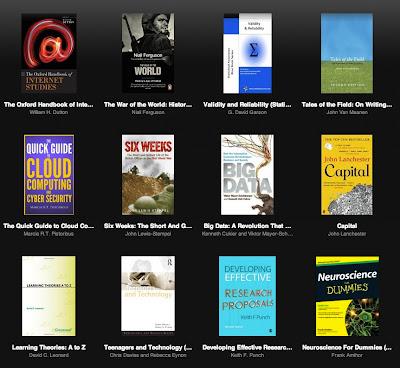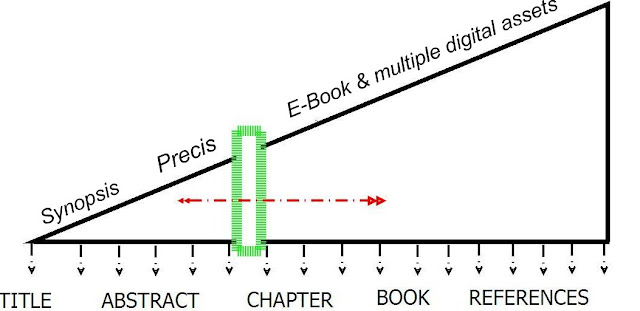When your 14 year old daughter is in bed with flu, and running a temperature, you relent when she pops her head up from under the duvet and wants to use your laptop to watch a movie and get in touch with friends.
I think, because I use a keyboard extension that the chances that I will pick up her germs are reduced; I forget that we both use the same mouse. She blows her nose, uses the mouse, goes to sleep for three hours. I pick up the laptop, go online, do stuff like making a sandwhich ...
That's four out of four now down with the bug, only the dog and the guinea-pigs seem fine (so far).
It doesn't take long before I wind down
An odd sensation, like your battery has gone flat.
If only it were as simply as plugging yourself into the wall or changing a battery 
I am just grisly and very tired
I had a flu jab in October so I should be avoiding the worst of it.
Sit back from this screen ... you just can't tell how infectious these things can be !

If it is one bonus it is the Kindle
It can be read in bed, your head on a pillow, operated with one finger, one thumb ... and as my brain is mush I can make the text huge and read three words across like a TV autocue. When I fall asleep, so does it. When I wake up it is picks up where I left off. In fact, it will read the book to me ... however, will it tell when I am asleep? That would be clever.
I've gone from one book to several

Between them Amazon and Kindle have their fingers in my wallet.
I'm 46% the way through the Rhona Sharpe book. Here's a new concept ... no pages.
In addition I have samples of six other books, two blogs and a magazine on a 14 day free trial (I will cancel these 7 days in or earlier to be sure I don't continue with anything I don't want)
And new books, and old books.
In the 1990s I bought CDs to get back or replace LPs of my youth. Over the last five years I've got rid of most of these and run with iTunes.
Books, due to lack of storage space, are in really useful Really Useful boxes in a lock up garage we rented to help with a house move ... three years ago. Is there any point of a book in a box? I have over the decades taken a car load of books Haye on Wye and sold them in bulk. A shame. I miss my collection of Anais Nin and Henry Miller; I miss also my collection on movie directors and screenwriters. Was I saying that this part of my life had ended? Or I needed the space (or money). I fear, courtesy of my Kindle and lists of books I have made since I was 13 that I could easily repopulate my mind with the content of these books. Indeed there is no better place to have them, at my finger tips on a device a tasty as a piece of hot toast covered in butter and blueberry jam.
Page Views
I do nothing and the page views I receive doubles to 500. What does this mean? I am saying too much? That the optimum blog is one per day? Or have folks found they can drill through here for H807 and H808? Who knows, I don't the stats provided by the OU are somewhat limited. I'd like the works. Which pages do people enter on, which are most viewed, where do they exit, what's the average pages viewed by an individual and so on. In my experience 500 page views means three people reading 100/150 each with a few others dipping in and out.
How Kindle has changed me in 24 hours
My bedtime reading for anyone following this is 'The Isles' Norman Davies.
I read this in the 1990s when it came out. I felt it deserved a second reading. It is heavier then the Yellow Pages and almost as big. Because of its bulk I may have it open on a pillow as I read; no wonder I fall asleep. (Works for me). Having downloaded it to the Kindle last night in 60 seconds and for less than £9 I may now read more than a couple of pages at a time. I can also annotate and highlight the Kindle version. I have an aversion to doing this to the physical thing ... I am used to selling on my old books. Not something I can do with a Kindle version. Which makes me think, should these digital versions not be far, far, far cheaper? Take 'The Isles.' The dust cover is in perfect nick, I took it off and boxed it rather than get it torn. The damp in the lock-up garage hasn't caused too much harm. I could get £8 for it, maybe £5.
What else?
More on E-learning:
- Rethinking Pedagogy for a Digital Age. (Rhona Sharpe)
- Creating with wordpress (blog)
- Blogs, Wikis, Podcasts and other Powerful Web Tools for Classrooms. (2010) Will Richardson
- E-Learning by Design (William Horton)
- How to change the world (blog)
- SEO Book (Blog)
- Digitial Strategies for Powerful Corporate Communications (2009) Paul Argenti and Courtney Barnes
- The Online Learning Idea Book (Patti Shank)
- Using Moodle (Jason Cole and Helen Foster)
Some bought, some simply samples. The blogs on a 14-day free trial. Neither worth £0.99 a month.
Best on Kindle
The big surprise, the book that is so beautifully transmogrified by Kindle, lifted by it, is 'The Swimming Drills Book' (2006) Ruben Guzman.

No! This isn't what happens if your swimmer gets it wrong. This is a drill called 'dead swimmer' in which they float head down, then slowly extended into a streamlined position, kick away and then swim full stroke.
'The Swim Drill Book' is a mixture of text, almost in bullet point form, and line drawings of swimmers in various stages of effort to perform a stroke or drill or exercise.
If an author needs advice on how to write for a Kindle, or for a tablet, I'd point them at this book. This is NOT how it was conceived, but it is how it works on this alternative platform.
You can try it for free
Download Kindle for PC or Kindle for Mac then find 'The Swimming Drills Book.' You can then view a sample which takes you beyond the acknowledgements, contents and introduction into the first chapter.
A thing of beauty
By tweaking the layout, text size and orientation, you can place the diagram/drawing full screen. It simply works, just as the stunning black and white engravings and photographs that your Kindle will feature (at random) when 'sleeping.'
Here's an thought: if you're not reading a book it is gathering dust, a dead thing, whereas with a Kindle your books are simply asleep.







